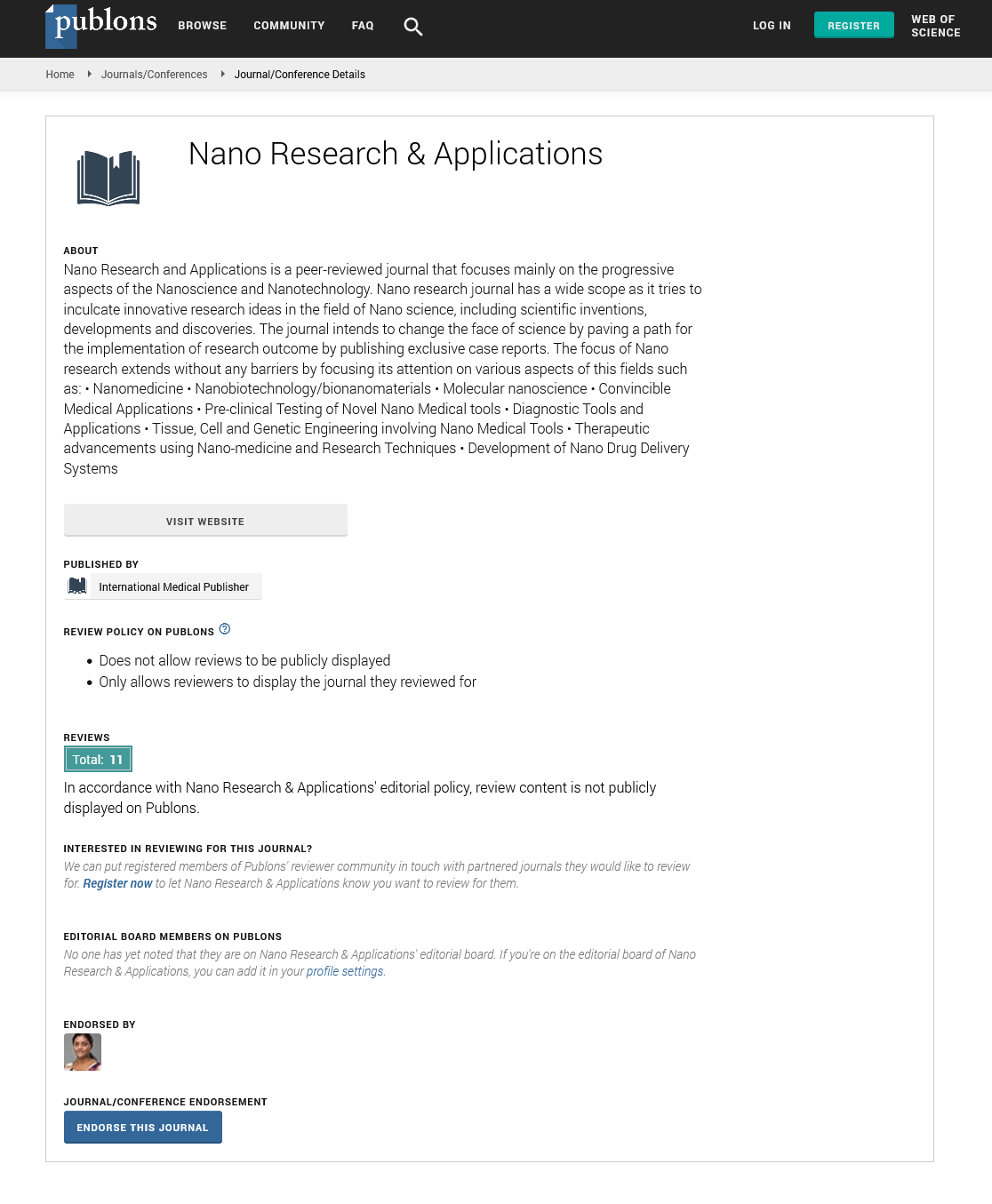ISSN : 2471-9838
Nano Research & Applications
Regression of prostate tumors after intravenous administration of targeted gene based nanomedicines
Joint Event on 25th Nano Congress for Future Advancements & 12th Edition of International Conference on Nanopharmaceutics and Advanced Drug Delivery
August 16-18, 2018 | Dublin, Ireland
Christine Dufes
University of Strathclyde, UK
Posters & Accepted Abstracts: Nano Res Appl
DOI: 10.21767/2471-9838-C3-015
Abstract
The possibility of using gene therapy for the treatment of prostate cancer is limited by the lack of safe delivery systems able to selectively deliver therapeutic genes to tumors by intravenous administration. Given that lactoferrin receptors are overexpressed on prostate cancer cells, we hypothesized that the conjugation of lactoferrin to generation 3 diaminobutyric polypropylenimine dendrimer would improve its transfection and therapeutic efficacy in prostate cancer cells. In this study we demonstrated that the grafting of lactoferrin to the dendrimer led to an enhanced anti-proliferative activity of the dendriplex by up to 5.8-fold in PC-3 cells compared to the unmodified dendriplex in vitro. In vivo, the intravenous administration of lactoferrin-bearing DAB dendriplexes encoding TNFα resulted in the complete suppression of 70% of PC-3 and 50% of DU145 tumors over one month. Treatment with DAB-Lf dendriplex encoding TRAIL led to tumor suppression of 40% of PC-3 tumors and 20% of DU145 tumors. Tumor suppression was also observed for 20% of both types of prostate tumors following injection of DAB-Lf dendriplex encoding IL12. The treatment was well tolerated by the animals. Lactoferrin-bearing generation 3 polypropylenimine dendrimer is therefore a highly promising delivery system for the gene therapeutic treatment of prostate cancer
Biography
E-mail:
C.Dufes@strath.ac.uk
Google Scholar citation report
Citations : 387
Nano Research & Applications received 387 citations as per Google Scholar report
Nano Research & Applications peer review process verified at publons
Abstracted/Indexed in
- Google Scholar
- China National Knowledge Infrastructure (CNKI)
- Directory of Research Journal Indexing (DRJI)
- WorldCat
- Publons
- Secret Search Engine Labs
- Euro Pub
Open Access Journals
- Aquaculture & Veterinary Science
- Chemistry & Chemical Sciences
- Clinical Sciences
- Engineering
- General Science
- Genetics & Molecular Biology
- Health Care & Nursing
- Immunology & Microbiology
- Materials Science
- Mathematics & Physics
- Medical Sciences
- Neurology & Psychiatry
- Oncology & Cancer Science
- Pharmaceutical Sciences
